After a chilly spring, my little hometown Tübingen is finally, and quite suddenly, lush and green. It was about time. I found myself dreaming of moving to Miami, Austin, Phoenix - any place where I could be sure the sun would wake me in the morning. I wanted hot. I wanted that yellow filter Hollywood uses for scenes taking place in Mexico.
But: I have a ticket back to New York. A place I know and love and love to hate. The past two weeks felt like waking up from a lazy afternoon nap. It was a frenzy of goodbyes, of stacking boxes, of marathon writing and editing sessions. It was inspiring and exhausting and my anxiety went through the roof. I finally found the courage to fully commit to this new life and launch a premium offering. What an amazing experience to get so much positive feedback. Thank you all for being there!
Much as I loved being around my family, I felt disconnected. I had turned into a tourist. An observer, studying the locals and feasting on their delicious Brezeln. Like my electrical devices, which need adapters for the local power outlets, I can function here. But I don’t quite fit in anymore.
My flight leaves tomorrow. My life, my stuff, has been wrapped, taped, and stacked. It’s tucked away again in a storage unit, waiting for a truck. Ready to be put on a container and shipped to a destination yet to be determined. Once again, I have become a vessel to move boxes of used books around the globe.
Why New York again? I was shocked to realize how little of the States (of the world, really) I have explored. I spent my 20’s wanting to prove that I was a hard worker. As hard a worker as my father, if you must know. What little vacation time I had, I mostly spent traveling back to Germany to see my family. And while I saw cities for work, two days in a hotel and conference rooms to study documents and attend meetings didn’t offer me even a glimpse of what it would be like to live there. Which left me with the practical problem of not having a feel for many interesting places.
Occasionally I fall down the Austin rabbit hole. Seems like a lot of interesting, smart people moved there. More space, a car, warmer weather, lower taxes. What’s not to like? But that’s just an image. It’s flat, paper thin, like a post card. It’s a few facts and buzzwords taped together. I don’t think you know much about a place until you’ve been there. Until you’ve smelled the air, tasted the water, put your hand on the ground. Until you’ve listened to the swell of the day and felt the locals’ gaze.
I remember stepping off the subway on 34th Street in Midtown Manhattan in 2008. It hit me immediately. This was different, like no place I had ever been to or imagined. It was electric. So much more colorful and interesting than what I knew. I was a college kid on a study abroad program with two nights booked in a cheap hotel across the Empire State Building (where I would later slave away in my first unpaid internship at a boiler room banking operation). It couldn’t be that hard to find a place a bit more expensive than the one I had Germany. Right? After exploring some dicey neighborhoods I ended up in Brighton Beach, known for not being Coney Island. I was roommates with a retired businessman who explained to me that the Russian mob kept the streets safe around his building. Fair enough.
Like in 2008, I don’t know where the journey will take me now. I still love New York and am excited to see how it is doing. But there is a voice whispering to be bolder, to go further, to explore more - both outside and within.
About a decade ago, I bought a “get rich quick” e-book about online marketing. It had one good quote that stuck with me: “Your number one job is to manufacture your own momentum.” This rings very true now, after months of standing still. I am excited to get the ball rolling. And I invite you to ponder that question: Does your life have enough momentum? What would it look like if you made that your number one job?
Some Readings
Kahneman coming out with a new book.
“And my own experience of how little this knowledge has changed the quality of my own judgment can be sobering. Avoiding noise in judgment is not really something individuals are going to be very good at. I really put my faith, if there is any faith to be placed, in organisations. … In Thinking, Fast and Slow, I really was trying to talk about the marvels of intuitive thinking and not only about its flaws – but flaws are more amusing so there is more attention paid there.”
Dan Loeb on exploring new ideas and markets, pushing back on the idea of sticking to a narrow circle of competence. This was easier to digest when his new ideas were venture-stage companies and Greek debt. It gets a little more complicated when asset classes and languages completely change - like with crypto-enabled “cloud governance.” I agree with him that being a learner is paramount and that the circle of competence should evolve, expand (something I appreciate about Diller’s story).
Speaking of crypto, I liked Packy’s analogy that “crypto is in-game money for the internet. It rewards participation directly.” And as long as the “Great Online Game” grows, so should the use of crypto (though not necessarily the value of specific coins). I am biased, of course, because I’ve started to earn money online (and wish I had earned a fortune in crazycoins). But if we look at the present clearly, I believe we see the online and offline games increasingly blend. What happens online starts to feed back more into “real world” outcomes. Online status and networks can lead to life-changing career and investment opportunities.
Advice from the man who started Amazon Prime:
“When you have a business idea, take action now before it dies.
Write 1 paragraph about the idea. Write a 4 slide business plan. Write your 1st line of code.”
Again: your job is to manufacture your own momentum.
An excellent piece by Marc Rubinstein (a founding member!✔) about the use of insurance float and permanent capital - “Other People’s Money”. I remember when these were en vogue, when Third Point and Greenlight copied the Berkshire model. I heard the pitch for a private reinsurance company from JP Morgan/Highbridge when I worked at a family office. Highbridge would invest in high yield debt. A JV partner would underwrite the insurance. Bam: float-levered credit. It’s harder than it looks though. The vehicle is subscale. Profitably underwriting insurance is a tough business in a world awash with capital. And the asset side of the book was fighting compressing credit spreads (or expanding valuations on the equity side).
There are other examples of people using insurance vehicles to make acquisitions or invest in risky assets. Former hotshot mutual fund manager Fred Carr loaded up Executive Life with junk bonds. I think when it went under, it was the biggest life insurance failure at the time. Perhaps a story to explore some day.
Thread on Exor, the Agnelli (Fiat) family’s conglomerate. I once did a deep dive on its CEO, John Elkann. Thrust into managing the family fortune with little experience. One can trace his evolution as a leader and investor through his letters and decisions. It’s a fascinating story and potentially a promising long-term company.
Loved to watch this. A guy hooking up a modem to a payphone to access an electronic mailbox on his computer. A reminder not to immediately dismiss a clunky, expensive, and inconvenient technology. But rather to imagine what it could be, what it could enable if the friction got removed, step by step.
You can buy an “Irish pub in a box” (why not a Brauhaus in a box?🤨)

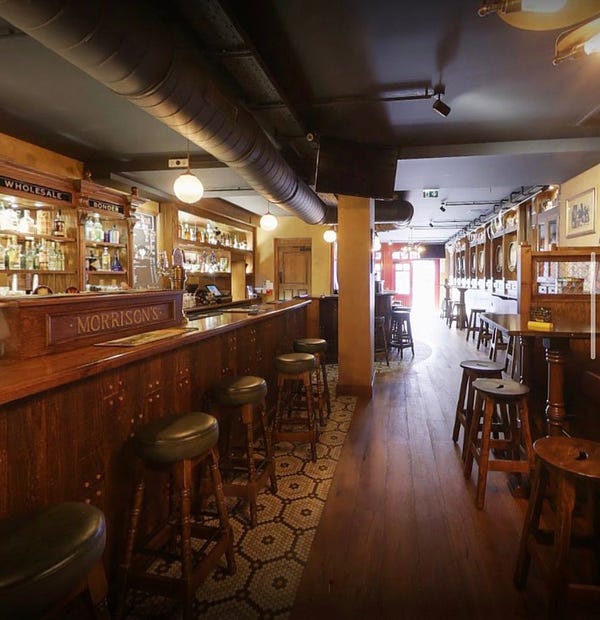
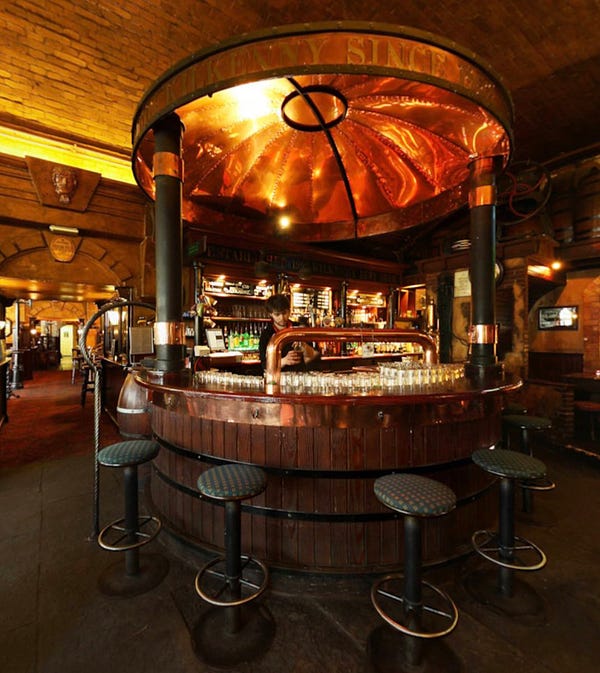
Me, when I travel:





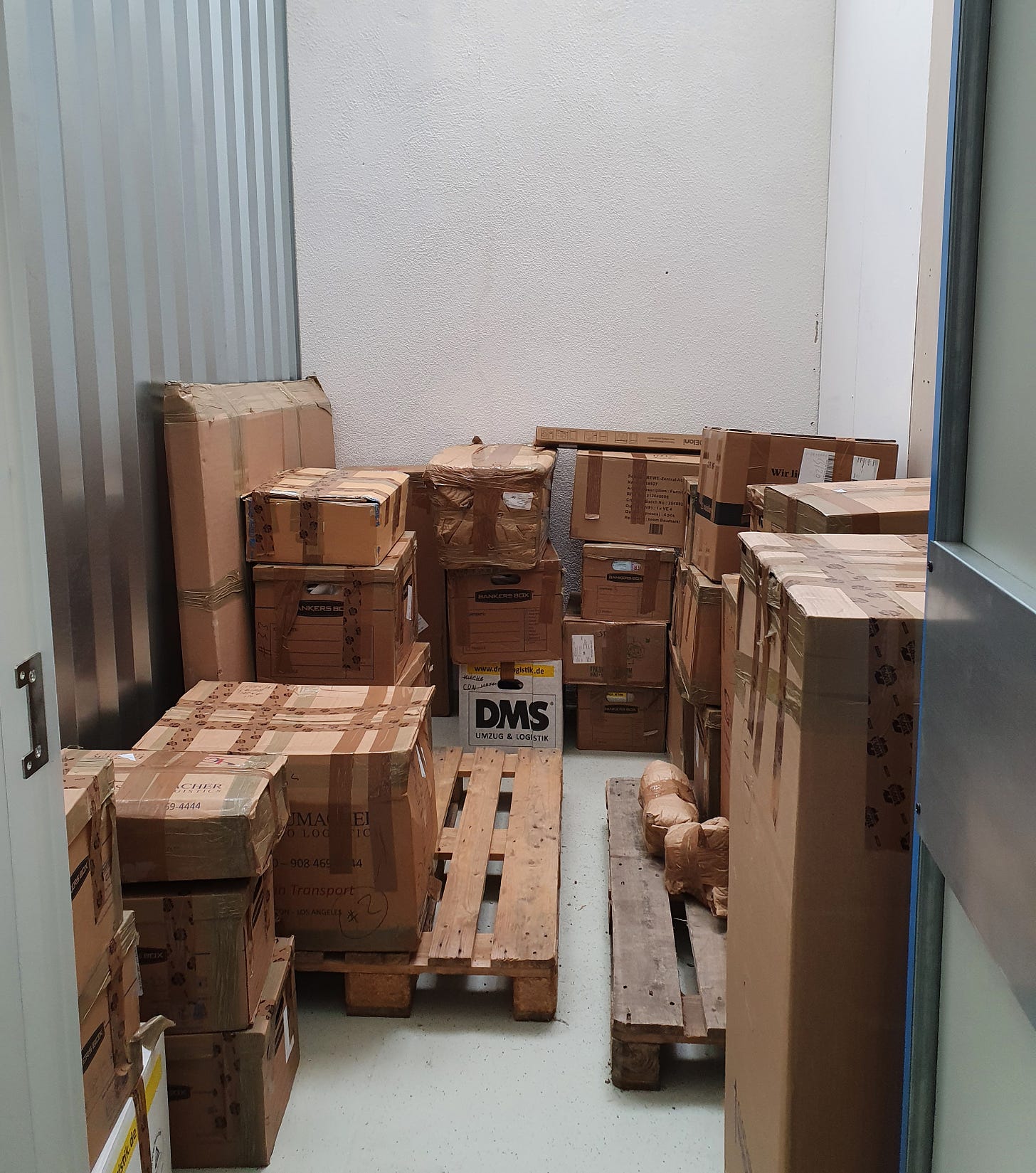

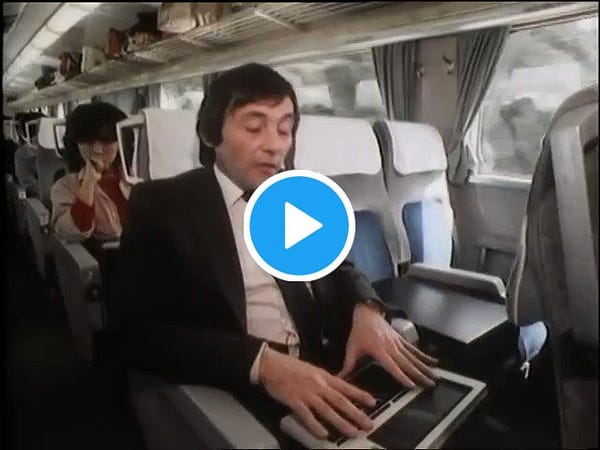

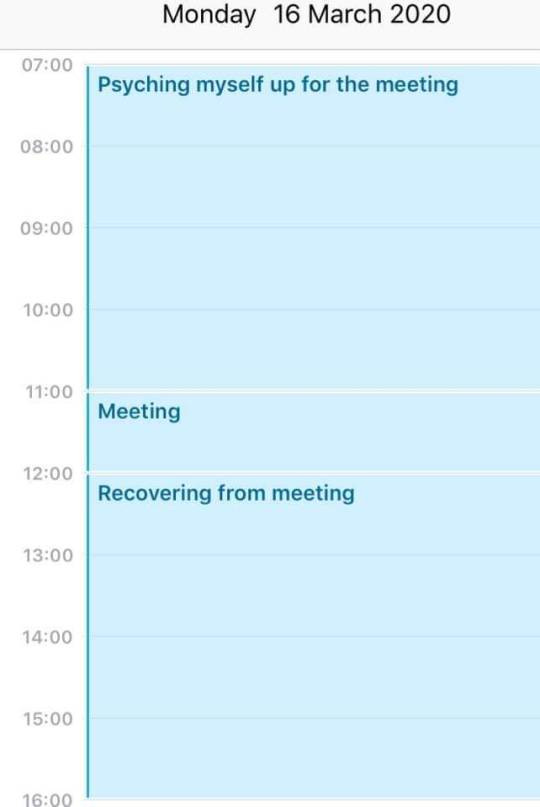
Bon voyage!
"Like my electrical devices, which need adapters for the local power outlets, I can function here. But I don’t quite fit in anymore." <3